Why are US officials, media unnerved by Pres. Raeisi’s Latin America trip
By Syed Zafar Mehdi
Iranian President Ebrahim Raeisi’s landmark three-nation tour of Latin America this week has drawn a wide array of reactions across the world, including from American officials and mainstream Western media.
The timing of the visit holds significance as it comes amid the transition from unipolar to multipolar world order and with the balance of power at a rate of knots shifting from the West to the East.
The three countries President Raeisi, accompanied by a high-ranking delegation, is visiting this week – Venezuela, Nicaragua and Cuba – have for years reeled under draconian US sanctions but have refused to retreat or surrender.
Iranian president’s visit to the region, in the backyard of the US, carries a symbolic message – the new world order is taking shape as free countries of the world are announcing their arrival with a bang.
In the new world order, America’s backyard, which was previously referred to as Washington’s traditional spheres of dominance, especially Latin America, is now closer to Iran than the US.
At a news conference in Washington on Monday, White House spokesperson John Kirby was asked about the Iranian president’s visit to three Latin American countries.
“Just your reaction, your thought on, you know, what he can achieve there and how the US might be countering whatever he’s trying to achieve there,” asked a reporter.
Kirby was clearly stumped by the question as he perhaps wasn’t prepared for it.
“As for the (Iranian) president’s visit to Central America, they can speak for their — their — their travel habits and their agenda,” he responded, as if looking for a better choice of words.
The White House spokesperson’s comment pointed to simmering concern and disquiet in the power corridors of Washington over President Raeisi’s visit to Latin America – the first by an Iranian president in seven years.
“We don’t ask countries in this hemisphere or any other to choose who they’re going to associate with or who they’re going to talk to or who they’re going to allow to visit,” Kirby stated.
“That’s for them to speak to. We’re focused on our own national security interest in the region.”
When the reporter pressed him harder on whether the Biden administration was concerned with the Iranian president’s visit to Latin America, Kirby couldn’t hide it anymore.
“I mean, look, I can’t speak to the agenda or what he’s doing or what he’s going to meet with. Are we concerned about Iran’s destabilizing behavior? You bet we are. And we — and we have and will continue to take steps to mitigate that behavior,” the White House spokesman said.
Still unable to find the right mix of words, the White House spokesperson said the Biden administration is concerned about Iran's "destabilizing behavior".
By “destabilizing behavior”, Kirby meant Iran’s expansion of cooperation with countries that have refused to be subservient to the Western hegemonic powers and their military-industrial complexes, especially in Latin America.
President Raeisi, on the first leg of his three-nation tour in Caracas on Tuesday, hailed the strategic ties between Iran and independent countries such as Venezuela and the spirit of resistance that binds them together.
“The common stance of the Islamic Republic of Iran and Venezuela, Nicaragua and Cuba is resistance against the hegemon system and countering unilateralism,” he said, with complete clarity.
For his part, Venezuelan president Nicolas Maduro said Iran is playing a key role as “one of the most important emerging powers in the world” as the world is shaking itself off Western imperialism.
This is essentially what Americans are terrified of – free countries of the world asserting themselves and saying no to American hegemony, loudly and clearly.
Micheal McCaul, chairman of the US House foreign affairs committee, in a statement on Tuesday, gave vent to his frustration over the Iranian president’s landmark visit to Latin America.
“Iran’s President Raeisi is cozying up to fellow pariahs during visits to Venezuela, Cuba, and Nicaragua. While China is running spy operations from Cuba,” the Texas representative wrote, curious to know what Joe Biden’s strategy is to “combat our adversaries’ growing presence in our own hemisphere”.
Iran's "growing presence" in the "backyard of America" is giving nightmares to McCaul and ilk and they want Biden to "combat" it.
Marco Rubio, a senator from Florida, in response to a report by the Voice of America citing President Raeisi as saying that Iran and Venezuela have “common enemies”, took to Twitter to rap the Biden administration for being “desperate for a nuclear deal” with Iran.
Senator Rubio perhaps hasn’t been updated about the status of the 2015 nuclear deal and the fact that his former Republican president Donald Trump walked out of it in May 2018 in a unilateral, illegal move.
And since April 2021, Trump's predecessor has been reluctant to return to the deal and lift sanctions that violate the deal and international law.
Anti-Defamation League (ADL), a notorious pro-Israel lobby group based in New York, also issued a statement describing President Raeisi’s visit as “destructive behavior” in Latin America.
The constructive behavior is that of America in the form of military coups, sanctions, and embargos against the people of Venezuela, Cuba, and Nicaragua.
Western media outlets toed the line of the US military-industrial complex, apparent from their virulent headlines and stories.
A report in The Hill said President Raeisi’s visit was “intended to strengthen cooperation between Iran and three Latin American dictatorships”, referring to them as “sworn enemies of the United States”.
The fact that these countries have refused to accept American diktats or serve the interests of the US military-industrial complex and opened their arms to other free countries of the world is what makes them “dictatorships”.
The report raised alarm over oil companies of Iran and Venezuela striking deals, Iran and Cuba inking a series of cooperation agreements in recent years and Iran daring to send its flotilla all the way to Brazil.
It's only natural that the expansion of cooperation between Iran and the Latin American countries is seen by hawks in Washington as a direct threat, not to America's national security but to America's global hegemony.
Iran’s footprint in the backyard of the US doesn’t pose any threat to America’s internal security, but it certainly is a heavy blow to the US dominance and a harbinger of a new world order in which Iran is a powerful player.
Yemeni FM: Israel’s sponsors accountable for ongoing aggression on Sana’a
Eight Palestinians killed as Israel attacks Gaza school, hospitals
VIDEO | Rome, Milan host new protests in solidarity with Palestinians
Dec. 21: ‘Axis of Resistance’ operations against Israeli occupation
Spain jurists demand ties with Israel ties be cut
VIDEO | Press TV's news headlines
VIDEO | Iran honors top Science Olympiad medalists
VIDEO | Austrians arrested at Gaza protest in Vienna


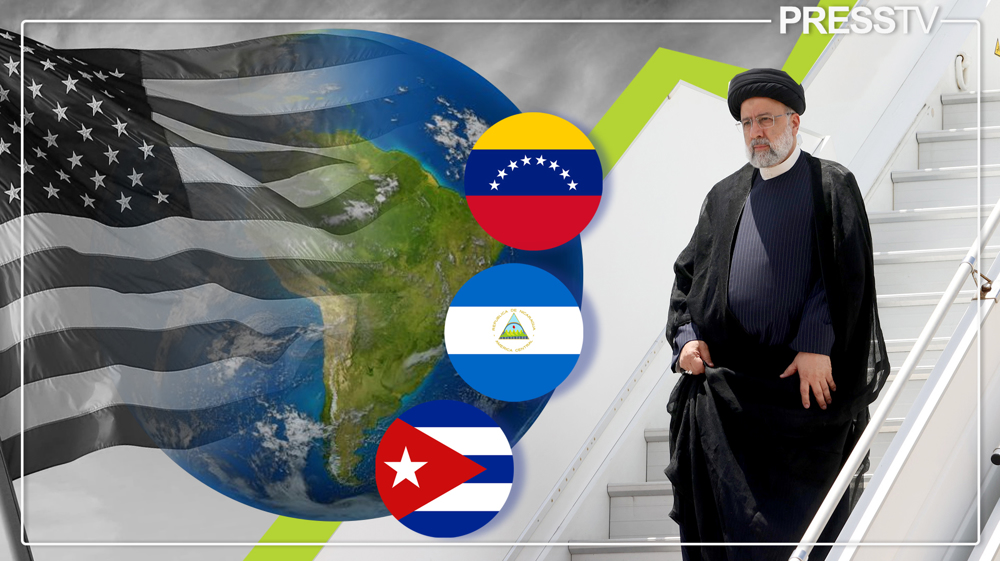

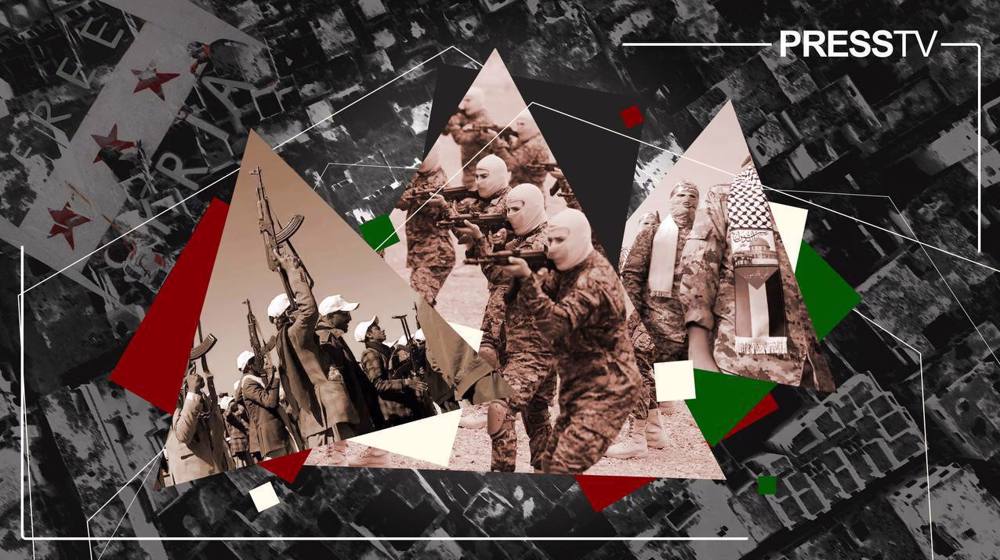
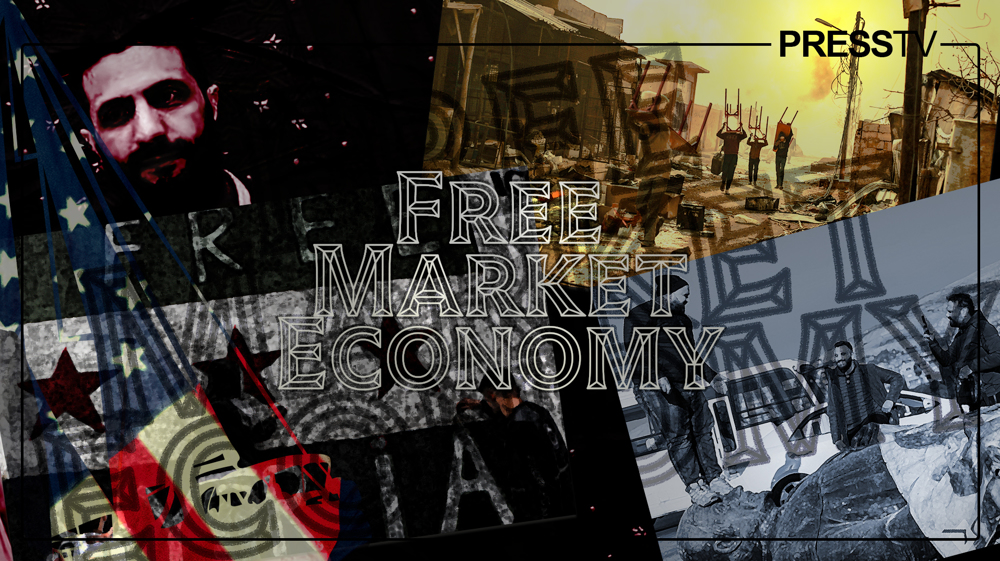



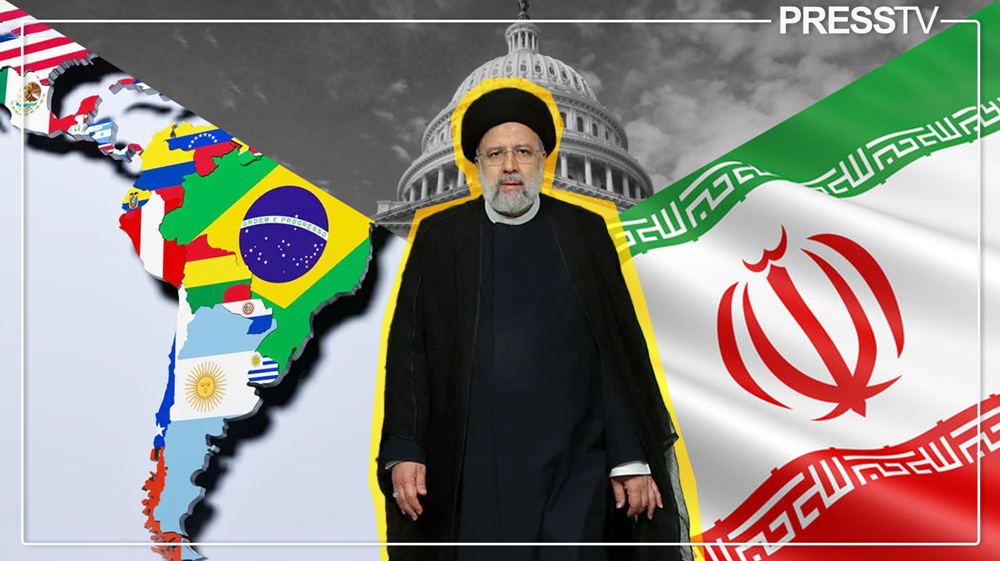
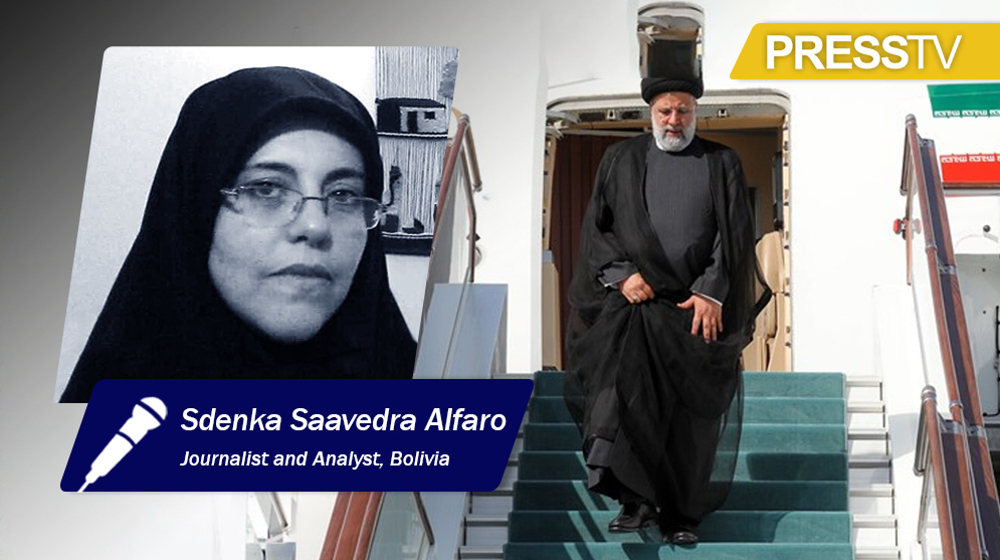
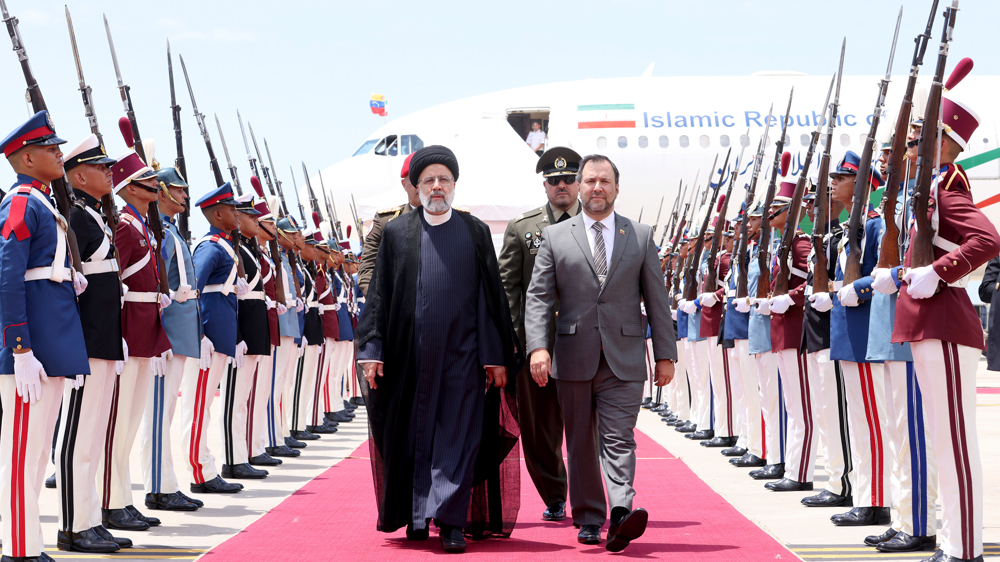
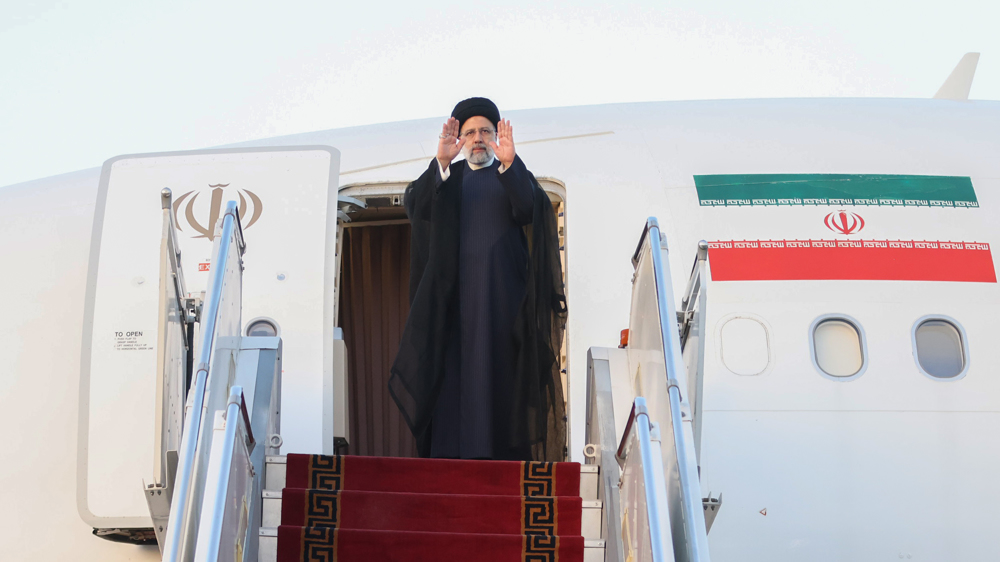
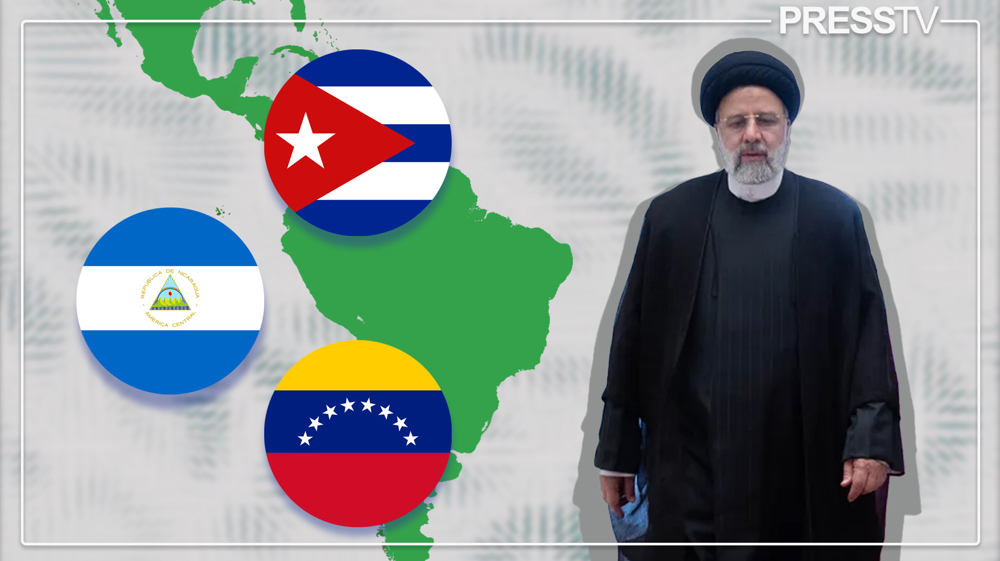

 This makes it easy to access the Press TV website
This makes it easy to access the Press TV website